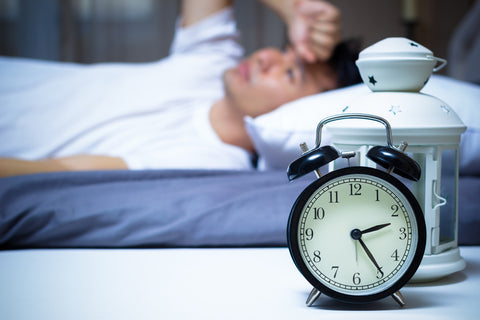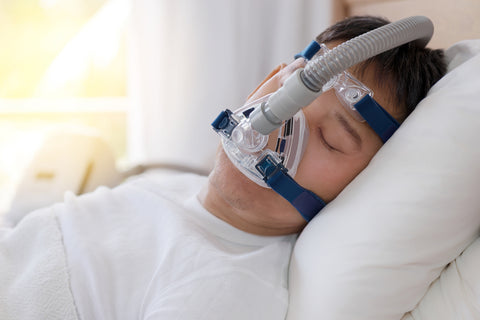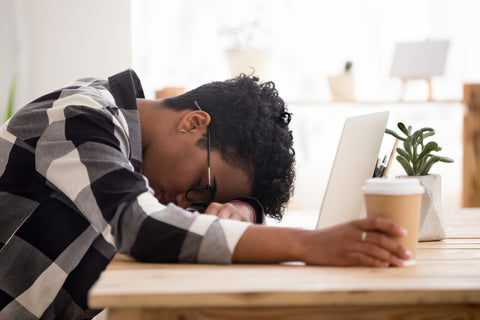on US orders over $100
on all US orders over $100

No matter what age you are, there's a good chance that you don't get enough sleep. Sleep deprivation is extremely common in America, with over one-third of Americans not getting the amount of sleep recommended by health professionals. But lack of sleep isn't just frustrating or fatiguing, but is linked to many serious health problems. Sleep disorders come in many forms, and in honor of National Sleep Comfort Month, we've provided an overview of what you need to know about healthy sleep below.
One of the notable things about sleep deprivation is just how widespread it is, affecting Americans of all ages:
Sleep disorders encompass a wide range of conditions, as well. Among them are:

There's a good chance you've had a bout of insomnia before. Having trouble falling or staying asleep is the hallmark of this disorder, but it can take many different forms for different people. Some have acute insomnia, which lasts from one night to a few weeks, and some have chronic insomnia, which can interrupt sleep for at least three nights a week for three months or more.
Other symptoms of insomnia may include daytime sleepiness, fatigue, irritability, and problems with memory or concentration.
Insomnia can have many causes, defined by two major types:
Secondary insomnia, in which a health condition or substance use causes disturbed sleep. Its causes may include:

A disorder that interrupts your breathing during sleep. A number of types are present here as well:
Signs of sleep apnea can include:
It can be difficult to recognize sleep apnea yourself. If you or a partner notices any of these symptoms, schedule a sleep study.
Treatments: The most common method of treating sleep apnea is Continuous Positive Airway Pressure, or CPAP. This is a device that delivers air pressure through a mask while you sleep.

A condition characterized by excessive daytime sleepiness, but there are other conditions that can occur alongside narcolepsy:
Narcolepsy's causes are unknown, but are associated with low levels of hypocretin, a chemical in the brain that regulates wakefulness and REM sleep.
A condition that causes a compulsion to move your legs, typically due to discomfort. For those with RLS, moving their legs eases unpleasant sensations in the legs, which can be described as aching, itching, throbbing, pulling, electric, crawling, or creeping. These sensations worsen at night and typically begin when you're at rest.
The causes of RLS are uncertain, but it may be due to an imbalance of dopamine, a chemical in the brain that controls muscle movement.
This is a condition that occurs during Rapid Eye Movement (REM) sleep, which is associated with dreaming. Those with this disorder are often absent the physical paralysis that accompanies REM sleep, and physically act out sensations from their dreams. This can cause punching, kicking, jumping from bed, grabbing, and flailing arms, among other reactions.
Its causes are unknown, but it has been heavily associated with degenerative neurological conditions like Parkinson's disease and multisystem atrophy. Nearly half of all cases involve withdrawal from alcohol or certain sedative-hypnotic medications.

Lack of sleep isn't just about feeling tired the next day. Sleep deprivation is a factor in many other health issues, such as:
In addition, the concentration issues and tiredness caused by lack of sleep can cause car accidents or workplace accidents. Sleep disorders can also cause interference in your professional or social life, as many people do not understand these disorders and the effect they may have on your workplace performance or ability to socialize.

Just as there's no single sleep disorder, there's no single treatment. But doctors suggest some guidelines for getting yourself into good sleep habits that may improve your sleep:
Are you looking to improve your sleep quality and wake up more rested? Visit Mountainside Medical Equipment! Click this link for our sleep health and insomnia product collection!
Leave a comment